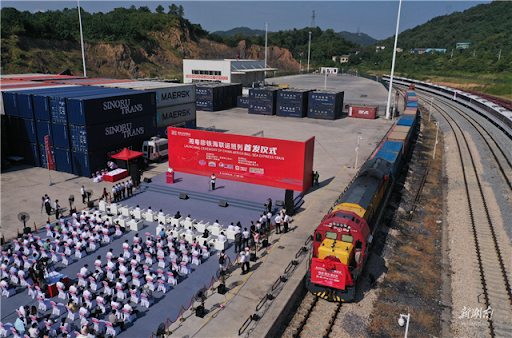Mukuru and Payfast Deliver on the Promise of Online Shopping for Cash-Paying South Africans

Mukuru’s partnership with Payfast is helping to bridge the gap between cash and digital commerce by making e-commerce more accessible to cash-first consumers in South Africa
South Africa’s predominantly cash-based economy is making significant inroads into the e-commerce sector, thanks to the growing success of the partnership between financial services platform Mukuru (www.Mukuru.com) and payment gateway Payfast by Network. For over a year, the two businesses have been enabling access to online shopping for cash-paying South Africans. Through MukuruPay (MPay), cash-first customers can now participate in digital commerce, unlocking new market segments for thousands of local retailers.
The partnership’s success stems from its ability to address a long-standing gap in the e-commerce market—the exclusion of millions of South Africans who prefer or rely on cash. A recent Payfast (https://apo-opa.co/4eMSDXX) “State of Pay” report shows that cash is the fourth preferred payment methods for customers and competes with widely used options such as card, open banking/ instant EFT and QR code. Likewise, an SBV Cash Survey 2024 (https://apo-opa.co/40shqdC) white paper outlines that 22% (over 13 million) of South Africans are cash-reliant and are not willing or cannot switch to other forms of payment. The study reveals that this group is vulnerable in the shift to digital services, despite holding immense economic potential.
Mukuru’s partnership with Payfast is helping to bridge the gap between cash and digital commerce by making e-commerce more accessible to cash-first consumers in South Africa. Throughout 2024, the company has seen a growing number of businesses adopt its payment option via Payfast, reflecting increased demand across sectors such as internet services, digital goods, fashion, groceries, bill payments, and education.
” The increasing adoption of MPay on Payfast by merchants reflects our conviction that cash-first customers are critical to South Africa’s e-commerce economy “
Timothee Dura, Head of Merchant Payments at Mukuru, says, “South Africa’s e-commerce cannot accept only cards and digital payment methods like EFTs or wallets. It needs to work for everyone. We are bridging the digital divide by meeting cash-first consumers where they are—offering them convenience and access to goods and services that were previously out of reach with a payment method that is familiar to them. This is how we build a more inclusive financial ecosystem in South Africa.”
For merchants, MPay offers a way to reach customers who have traditionally been excluded from online shopping due to their reliance on cash. The payment method builds on Mukuru’s long-standing experience with cash-first communities and is available through the Payfast by Network dashboard for registered merchants. Once MPay is enabled, a customer shopping on the merchant’s online store selects Mukuru as the payment option at checkout. The system generates a unique order number, valid for 36 hours. The customer can then pay in cash at any of Mukuru’s 11,000+ payment points across South Africa—including major retailers like Spar, Pick n’ Pay, Boxer, and Shoprite.
As soon as the customer pays, Mukuru alerts the merchant—enabling swift order fulfilment. MPay also helps merchants reduce operational costs by cutting down on cash handling, removing the need for cash-on-delivery, and minimising the risk of fraud.
For consumers, MPay presents an alternative to cash on delivery, particularly relevant in informal or rural areas, where logistical challenges and safety concerns are more frequent. It enables participation in digital commerce while retaining the familiarity of cash payments, facilitated through Mukuru’s established physical network.
“The increasing adoption of MPay on Payfast by merchants reflects our conviction that cash-first customers are critical to South Africa’s e-commerce economy. We remain committed to bridging the gap between cash and digital payments, creating safer, regulated, and accessible pathways for unbanked and underserved communities to participate in the formal economy”, concludes Dura.





